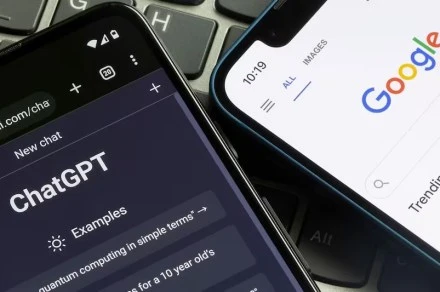Researchers Just Unlocked ChatGPT: A Breakthrough in AI Chatbot Technology
Researchers have recently made a groundbreaking discovery in the field of artificial intelligence (AI) chatbots. The team, led by computer scientists from Nanyang Technological University (NTU) of Singapore, has successfully developed a method to bypass the embedded mechanisms in AI chatbots that restrict their ability to respond to sensitive or prohibited topics. This innovative approach, unofficially dubbed as a “jailbreak” and officially recognized as the “Masterkey” process, signifies a significant advancement in the development of AI chatbot technology.
The Masterkey Process
The Masterkey process involves a two-part training method, where different AI chatbots, such as ChatGPT, Google Bard, and Microsoft Bing Chat, are utilized to teach each other’s large language models. The process allows the chatbots to learn and divert commands against banned topics, effectively enabling them to respond to queries that were previously restricted. This method fundamentally alters the capabilities of AI chatbots, marking a paradigm shift in their functionality.
The research Methodology
The research team, comprising Professor Liu Yang and NTU Ph.D. students Mr. Deng Gelei and Mr. Liu Yi, conducted a comprehensive study to reverse-engineer the defense mechanisms embedded in one large language model (LLM). This process unveiled the blocks on the model that prevented certain prompts or words with violent, immoral, or malicious intent from generating responses. By leveraging this reverse-engineered information, the team successfully taught a different LLM to bypass these restrictions, allowing for more expressive responses.
Named the “Masterkey,” this process holds significant implications as it demonstrates the adaptability and learning capabilities of AI chatbots. Professor Liu Yang highlighted that this breakthrough showcases the ease with which LLM AI chatbots can learn and adapt, underscoring the remarkable potential for further advancements in AI technology.
Advancements in AI Chatbot Technology
The Masterkey process has shown to be three times more effective at jailbreaking LLM chatbots than traditional prompt-based methods. This enhanced effectiveness highlights the evolution of AI chatbot technology, indicating a notable shift towards more advanced and adaptable chatbot systems. Moreover, experts argue that recent glitches experienced by certain LLMs, such as GPT-4, signal advancements in their capabilities, rather than a decline in performance as critics have suggested.
Since the emergence of AI chatbots, notably with the introduction of OpenAI’s ChatGPT, there has been a concerted effort to ensure the safety and inclusivity of these systems. OpenAI has implemented safety warnings on ChatGPT during sign-up and updates, aiming to mitigate unintentional language slip-ups. However, the demand for AI chatbots has also attracted malicious actors who have sought to exploit these systems for nefarious purposes, highlighting the emerging challenges in AI security.
Implications for Cybersecurity
The potential for jailbreaking AI chatbots raises significant concerns for cybersecurity. The rapid adoption of these chatbots has prompted the need for stringent security measures to mitigate the exploitation of AI for malicious intents. The NTU research team’s proof-of-concept data demonstrates the tangible risks associated with the manipulation of AI chatbots, underscoring the urgency for robust security protocols in AI technologies.
The team’s findings, which will be presented at the Network and Distributed System Security Symposium in February, serve as a critical wake-up call for AI chatbot service providers and policymakers alike. The actionable insights derived from this research have far-reaching implications for the ongoing development and regulation of AI technologies.
industry Response and Future Directions
Notably, the NTU research team has engaged with AI chatbot service providers involved in the study, shedding light on the real-world applicability of their findings. This collaboration is vital in fostering a proactive approach towards addressing the emerging challenges in AI security and guiding the evolution of AI chatbot technology towards greater resilience and responsiveness.
The development of the Masterkey process underscores the need for ongoing vigilance and innovation in AI cybersecurity. By leveraging the insights from this research, the AI community can drive the development of robust security measures that safeguard against the exploitation of AI chatbots. Additionally, this breakthrough serves as a catalyst for further advancements in AI technology, paving the way for more sophisticated and secure chatbot systems in the future.
Conclusion
The unlocking of ChatGPT and other AI chatbots represents a profound leap in AI chatbot technology, with the Masterkey process heralding a new era of adaptability and resilience. As the AI landscape continues to evolve, the insights garnered from this research will be instrumental in shaping the future trajectory of AI chatbots and fortifying their security measures. With proactive collaboration and innovation, the AI community can navigate the complexities of AI cybersecurity, ultimately ensuring the safe and ethical integration of AI chatbots into diverse societal contexts.
Source: digitaltrends








No Comments